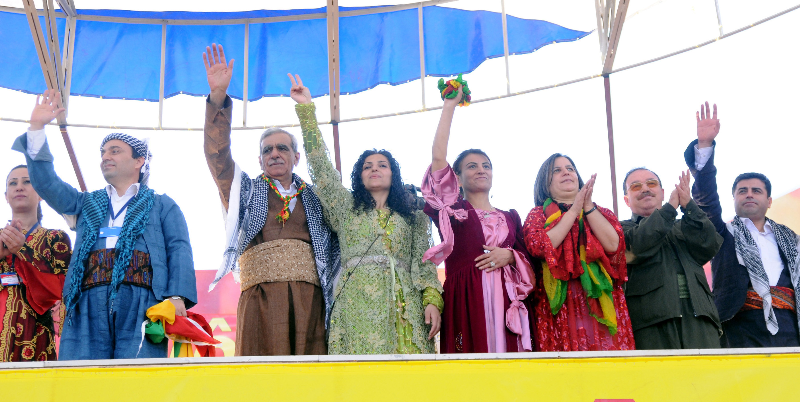It is possible to divide Turkey’s experiences in the Kurdish issue into a number of periods: First, the period of problems caused by primitive nationalization practices carried out in the first decades of the Republic; second, the regressive period from the 1960 coup until the 1980 coup; third, a complicated period from the emergence of the Kurdistan Workers’ Party (PKK) through the chaotic 1990s until PKK leader Abdullah Öcalan’s capture in 1999. Now, in a new period, we are witnessing the actors of the “Old Turkey” systematically searching for any tools to freeze the democratization process.
While the actors of the “New Turkey” and the new Middle East were the ones who stopped resorting to violence or anti-democratic means, the actors of the old order were the ones who failed to give up their weapons. The PKK systematically took up arms again after the beginning of the democratic initiative – something that can be seen as one of the most dramatic examples of the PKK’s existential crisis. The PKK, Peace and Democracy Party (BDP) and their anachronistic intellectual colleagues have failed to answer the following, simple question: Would the PKK think about laying down its arms under any circumstances as part of a solution to the Kurdish issue in Turkey? Even hypothetically, they could not imagine disarmament. Apparently, they are quite convinced that both armed struggle and the Kurdish issue will exist indefinitely. Since nothing good happens and in order to reach the limits of revolutionary paradoxes, timeless anachronistic revolution will continue as long as Stalinist fantasies keep being reproduced by Kurdish issue experts and actors.
Let alone providing promising projections which can be taken seriously after a bloody and tragic history of 30 years, the PKK and its political movement have failed to take any initiative to minimize the political and social divergence in Turkey. The PKK’s sole argument is the myth of “the gains of the armed struggle,” which is a great fallacy. It prefers to tilt at windmills rather than be a part of the indispensible democratization process in Turkey. The PKK no longer acts as the most crucial actor in the Kurdish issue; on the contrary, there is now “the PKK issue of the Kurdish issue.” Because of this transformation, the PKK began to ignore the dynamics of the Kurdish issue and put Kurdish nationalism, a naïve imitation of Kemalist nationalism, at the top of its agenda.
For the PKK, the process can only go from the initial “Defeat in the 1990s” to the “Second Defeat” in the 2010s. Following the 1990s, the situation was rectified in the 2000s by the Justice and Development Party (AKP) in favor of Kurdish and Turkish people and at the expense of anti-democratic actors. Out of the 2010s, there will ultimately be domestic consolidation that is to the detriment of the PKK and regional groups. Unfortunately in this process, social fraternity will be damaged in the medium term.
It is possible to make certain analyses as to the results of the “revolutionary people’s war” launched by the PKK within the framework of the Middle Eastern proxy wars. The PKK is trying to be taken as a powerful actor in possible future negotiations by putting Turkey in a much more difficult position. Increasing terror will be enough for the PKK to achieve the first step in its aim. However, the cost of this for the PKK will be high: it won’t be able to find a place in the New Turkey, let alone hold onto a more powerful position.![]()
In this article
- Domestic Policy
- Opinion
- 12 September 1980 Turkish coup d'état
- 1960
- 1980
- 1990
- 1999
- 2000
- 2010
- 2011
- Global Actors | Local Actors
- Kemalism
- Kurdish Community
- Kurdish Nationalism
- Kurdish Question
- Kurdistan Workers' Party Terrorist Organization (PKK)
- Middle East
- PKK - YPG - SDF - PYD - YPJ - SDG - HBDH - HPG - KCK - PJAK - TAK - YBŞ
- Predicament
- Proxy War
- SETA
- Terror
- The


